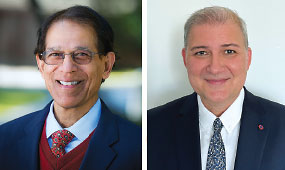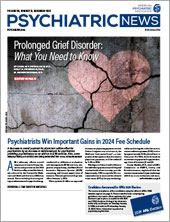A critical but neglected problem in today’s medicine, including psychiatry, is that clinicians mostly focus on asking their patients “What is wrong with you?” without asking them “What are your strengths?” We inquire only about the risk factors, such as “What led to your symptom relapse?,” and not about protective or preventive factors, such as “What do you think prevented a relapse during the past four years?” Positive Psychiatry is the science and practice of psychiatry that focuses on study and promotion of mental health and well-being through enhancement of positive psychosocial factors such as resilience, wisdom, and social relationships. There is strong empirical evidence, based on numerous well-designed studies, that these positive factors are associated with significantly better mental, physical, and cognitive function.
Typically, psychotherapy for people with mental illnesses aims at reducing their psychopathology and stress. This is unquestionably important; however, there is also a need for psychotherapy that seeks to enhance positive factors in the patients. There are several resilience-promoting psychotherapeutic interventions exemplified by Stress Management and Resilience Training. Mind-body interventions including meditation and mindfulness have not only promoted well-being but also resulted in positive biological changes such as the lowering of pro-inflammatory cytokines in the blood and an increase in brain white matter integrity on brain imaging. A meta-analysis of randomized, controlled trials targeting specific components of wisdom (empathy/compassion/altruism, emotional regulation, or spirituality) in people with mental or physical illnesses, or those from the general population, reported significant enhancement of that component with moderate to large effect size, often accompanied by an increase in well-being. There are also psychotherapeutic interventions that address social relationships and meaning or purpose in life (see the paper by Jeffrey Lam et al. noted at the end of this article).
Epigenetic studies suggest that there are vulnerable and resilient periods of human development. DNA methylation in response to stress associated with pathogenesis most commonly occurs in preschool and adolescent years. Psychotherapeutic interventions with children and adults have reportedly reversed DNA methylation in gene regions associated with psychopathology.
Interventions studied include several forms of psychotherapy—for example, psychodynamic, supportive, cognitive-behavioral, dialectical, and interpersonal therapies. Our understanding of the neurobiology of resilience asserts that even brief psychotherapy interventions can promote salutary neural plasticity, transformative learning via memory reconsolidation, increased serotonin transporter density, and normalization of fronto-limbic connectivity. Psychotherapy can be neuroreparative and promote adaptation to stressors.
We must hasten to add that these studies do have a number of methodological limitations similar to those seen in other intervention research. Nonetheless, they at least suggest that in the care of people with mental illnesses, there is also a place for psychotherapies that seek to promote positive factors. The therapies mentioned above differ from others in their explicit focus on patients’ strengths, which is likely to make them feel empowered. This unique realization of own power and capability can impact their approach not only toward their own illness but also toward life in general. Also, teaching psychiatry residents these positive psychotherapies will help them perceive their patients not as cases with mental illnesses but as individuals with courage and fortitude.
With rapid globalization and expansion of technology, there is an increasing need for collaboration between high-income and low- and middle-income countries. While basic principles of psychotherapy may be universal, there are several major cultural factors that can impact the design and administration of psychotherapies. For psychiatrists like us who migrated from other continents to the United States, understanding the sociocultural factors is critical. The World Federation for Psychotherapy, an affiliate of the World Psychiatric Association, emphasizes both broad and narrow perspectives of cultural influences on psychotherapies, including those targeting positive psychosocial factors. We welcome suggestions from other APA members about cross-cultural studies of psychotherapies that are rooted in positive psychiatry. ■

